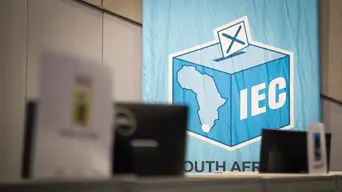Onus on candidates to ensure signatures submitted 'free of any fraudulent activity' - IEC
The IEC has previously admitted it doesn’t have capacity to verify signatures submitted by parties and independents, at best it can cross-check ID numbers submitted to confirm a signatory is alive and registered to vote.

Picture: Eyewitness News
JOHANNESBURG - As political parties put in the final preparations for the gruelling general elections in May, questions about the nomination process are still up in the air.
This is as claims of signature fraud re-emerge.
At least two parties have been accused of forging supporters’ signatures to qualify for the May 29 elections, including Jacob Zuma’s uMkhonto weSizwe Party and Mmusi Maimane’s Build One South Africa.
The Independent Electoral Commission of South Africa (IEC) requires parties to submit 15,000 signatures while independent candidates are expected to submit 1,000.
The IEC has previously admitted that it doesn’t have the capacity to verify the signatures submitted by parties and independents.
At best, the electoral watchdog can cross-check the identity numbers submitted to confirm that the signatory is alive and registered to vote.
Amid fresh questions about the veracity of some of the signatures, IEC chief electoral officer Sy Mamabolo said the onus was on the candidates submitting the signatures to uphold the Electoral Code of Conduct.
“We are aware that the country has no database of 62 million of us and therefore there’s no base against which to verify. That’s why the responsibility falls of the party administrators to make sure that the signatures they submit are free of any fraudulent activity.”
It’s unclear at this stage what sanctions will be levelled against parties or independent candidates found to have flouted the nomination process.